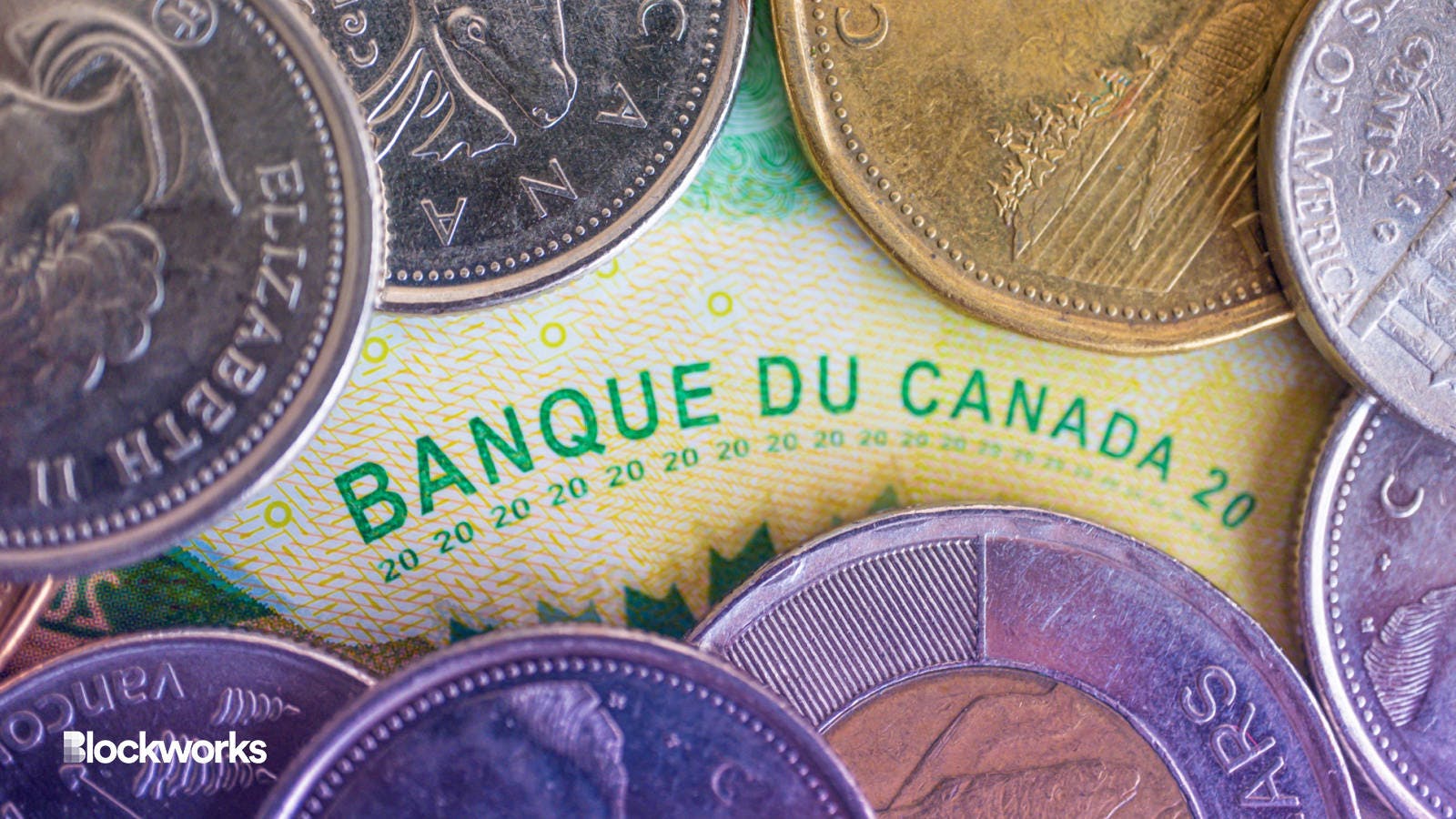Canadians appear willing to embrace CBDC: Survey
Canadians seem open to CBDC adoption, but there’s still concerns about privacy, fraud, cyberattacks and loss of financial control

Primestock Photography/Shutterstock modified by Blockworks
A recent survey suggests a majority of Canadians could be willing to adopt a central bank digital currency (CBDC), although there’s some hesitation due to privacy concerns.
Of the 1,500 Canadians above 18 years of age recently polled by WealthRocket, 59% were willing to use a CBDC. Only 5% exhibited strong willingness, however, and a quarter of respondents said they weren’t willing at all.
CBDCs are digital forms of money issued either directly to retail consumers or wholesale to institutions, regulated by the central bank.
There aren’t many CBDCs in the wild right now, but proponents have touted potential benefits including fast and easy digital payments without physical cash or intermediary banking partners.
The Bank of Canada started a public consultation on CBDCs in May. It isn’t planning to launch one right away, but they’re getting ready just in case Parliament asks for one.
Canadians reportedly expressed worries that the introduction of a CBDC could mean the end of physical cash. But the Bank of Canada maintains that cash will still be around. If a CBDC is introduced, it would just be an additional option alongside bills and coins, according to the central bank.

There were also worries about potential fraud, the risk of cyberattacks and a fear of losing control over their personal finances.
Still, the majority of respondents said they were confident that if a CBDC is implemented, the central bank will take appropriate measures to protect their privacy.
Not just Canadians: CBDC support spread globally
According to a survey conducted by Guardtime in 2021, there is global willingness to use a CBDC issued by one’s own central bank.
The survey, which covered 10 countries including Germany, Singapore, South Africa, UAE, UK, US, France, Hong Kong, Sweden and Norway found 64% would be inclined to use a CBDC when it is initially launched.
There was a smaller segment who stated they would not use a CBDC at all. These findings show that people have different views and opinions when it comes to using CBDCs in different countries.
“We need to prioritize education in a way that is slow, methodical, and transparent,” said Jennifer Lassiter, executive director of The Digital Dollar Project.
Get the news in your inbox. Explore Blockworks newsletters:
- The Breakdown: Decoding crypto and the markets. Daily.
- 0xResearch: Alpha in your inbox. Think like an analyst.






